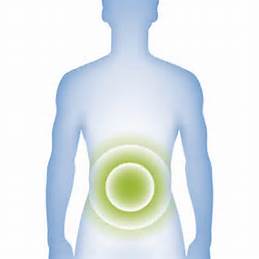Heart Your Gut

Hippocrates said “All disease begins in the gut.” He might have been even wiser than we ever knew. With Valentine’s Day coming soon, it makes sense to talk about the importance of keeping your heart healthy. Did you know that heart health can be predicted by looking at the bacteria in your gut? A molecule, called trimethylamine N-oxide (TMAO), is produced by gut bacteria when you eat red meat, eggs, and dairy. Based on the level of TMAO in your gut, scientists can determine how healthy your heart is, according to a study in the European Heart Journal. The higher the level of TMAO, the higher your risk for heart disease. So, what should you do to reduce the levels of TMAO?
Eat well. Limit red meat and dairy; enjoy more plant foods like fruits, veggies, nuts, and whole grains; replace butter with olive oil and canola; enjoy fish and poultry, and (oh yeah!) enjoy a daily glass of red wine. Eat fermented foods like yogurt, kimchi, sauerkraut, polenta and asparagus. They contain probiotics and prebiotics to encourage the growth and activity of microorganisms in your gut.
Move more. Research has found that exercise also boosts the diversity of bacteria found in the gut, which can have positive long-term health implications. Your gut has a variety of bacteria. Reduced variation makes you more prone to health problems and has been linked to diabetes and obesity, which increase your risk for heart disease. Variation in gut bacteria also enhances immune function.
Avoid or minimize the enemies of gut health. Antibiotics and other medications like birth control and non-steroidal anti inflammatory drugs (NSAIDs) such as Advil, Motrin and Aleve, and prescription NSAIDs such as Celebrex, can cause an imbalance of gut flora. Of course, you might need these medications on a regular basis, so take some simple advice to manage your gut bacteria better.
- Limit intake of refined carbohydrates, sugar and processed foods.
- Limit wheat and seed oils such as corn, cottonseed, safflower, sunflower, rapeseed, peanut, and soybean oils that can cause leaky gut.
- Manage stress.
The human body is a vast ecological system, and follows the same rules of any other ecosystem on the planet – resistance, resilience, and balance. Make your ecosystem strong by creating a diverse bacterial environment that will help you thrive!

















